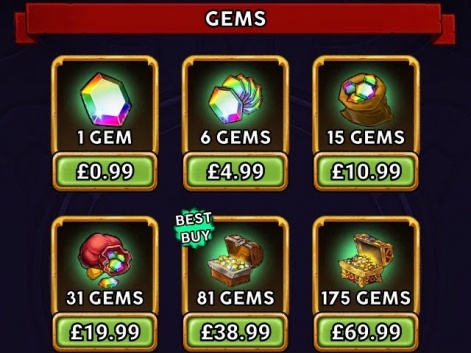Welcome back to the In-App Purchase Inspector – our regular look at free-to-play games from the consumer's perspective.
In each instalment, we consider the incentives or pressure applied to make in-app purchases, their perceived value, the expansion offered by IAPs and the overall value of the experience.
The end goal is to see whether the game makes a good enough case for us to part with our cash, or whether players are content – or engaged enough – to 'freeload'.
This time we're taking a look at Dragon's Watch. This squad-based RPG is heavily inspired by Japanese mobile game design and is the debut game from London start-up The Secret Police.
East to West
The studio's co-founders Ric Moore and Harry Holmwood spent a long time analysing App Store data.
They even developed what Moore referred to as “a fancy tool that makes real-time charts of all the most efficiently monetising games.”
Their discovery was that Asian mobile RPGs appeared in these charts with surprising regularity, racking up impressive revenues despite only catering to relatively small Western audiences.
Asian RPGs are regularly among the most efficiently monetising mobile games.
From playing these games, however, there were elements that frustrated the pair: long initial downloads, tedious front-loaded story elements and generally poor onboarding.
Just what could be possible, then, for a game that understood and channelled the appeal of these titles, with an eye to eliminating their most obvious flaws and churn points?
Dragon's Watch is the game that aims to answer that question.
A perfect balance?
From the off, the inspiration shines through clearly. A squad-based RPG in the Japanese style, based around turn-based combat and collection-fusion-gacha metagame, it has no need to reinvent the wheel.
But it does introduce one new feature, in the form of an iPod-inspired scroll dial that controls the positioning of the player's six-unit team.
The ability to let some units recoup while pushing others to the forefront adds another tactical dimension, but above all else it's just an intuitive one-handed control scheme that suits on-the-go mobile play.
Coins are awarded for completing quests and selling heroes.
The process of recruiting and upgrading said units, however, remains largely familiar.
Time for a drink
The two primary currencies in Dragon's Watch are Coins and Gems. The former is the game's soft currency, required for the fusion and evolution of characters, as well as potion crafting.
Coins are awarded for completing quests and can also be earned by selling heroes.
Gems, meanwhile, come in bundles ranging from $0.99 for one Gem to $74.99 for 175.

Five Gems is enough to recruit one new hero via a temple summon – subject to timed promotions that increase the probability of summoning certain unit types – and two can be used to revive a downed team mid-battle.
For non-spending players, one Gem can be earned for each completed quest – but only for the first time it's completed. This means that five completed quests earns enough currency – worth $0.99 in real money – for a temple summon.
100 Ale can be used to recruit a hero from the tavern.
But along with this, there's another summon-specific currency called Ale. 20 Ale is awarded for each quest completed, with more up for grabs for clocking daily missions and achievements. 100 is enough to recruit a hero from the tavern.
Then finally, to guarantee a Rare hero, there are Rare Summon Tickets. These are offered as part of some IAP bundle offers.
Bundles of energy
Of course, Dragon's Watch features the increasingly ubiquitous starter bundle. Its offering consists of 10 Gems, 5,000 Ale, 100,000 Coins and three Rare Summon Tickets, all at an attractive price of $3.99.
For further down the line, a $29.99 bundle offers 70 Gems and 200,000 Coins. It's somewhat surprising, however, that there is nary a sniff of annuities or VIP rewards – both extremely common in the Asian RPGs from which The Secret Police takes its inspiration.

But one common trait of these games that Dragon's Watch absolutely does adopt is auto-battle, which is unlocked for all quests that the player first completes manually.
This allows battles to be played out with no player input, at up to three times the normal speed. It allows rewards like Coins and Ale to be generated very quickly, but it also depletes energy.
By simply playing through quests manually, energy – which regenerates at a rate of one every three minutes – would take a long time to deplete. But auto-battle changes all this - and it costs three Gems to restore.
Generally, though, pressure to spend in Dragon's Watch is low. Free currency provides enough opportunities to summon new characters, Gold flows freely enough to keep fusing and upgrading heroes while energy is relatively plentiful.
Only time will tell whether this distinctly Asian-style RPG, made by industry veterans eyeing the genre through a Western lens, is a successful experiment. But as far as the experience goes, it's a smooth and enjoyable one.





















